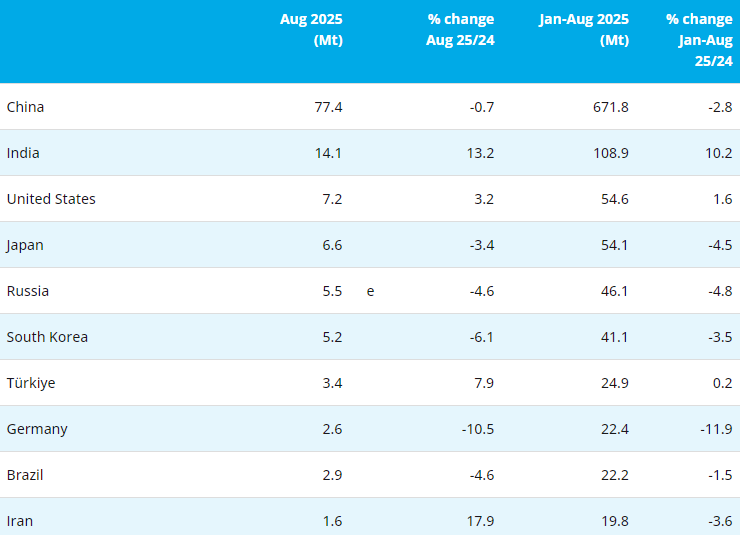[Ferro-Alloys.com]Turkish magnesium producer Esan Eczacibasi has reached about 25% of its capacity of 15,000 mt/year as it ramps up its plant in Eskisehir, the plant's director, Ilhan Goknel, said.
The plant, which started operations last September, is one of the few primary magnesium plants built outside China in the past 15 years.
Esan is producing primary magnesium at purities of 99.8-99.95% cast in ingot sizes of 8 kg and 12 kg, targeting sales toward Europe, Turkey, Japan and the US, "all over, wherever needed," Goknel said, speaking at the International Magnesium Conference in Rome Tuesday.
The company, however, will postpone for a year the planned 2016-17 start-up of the second 15,000 mt phase of the plant, aiming to gradually increase capacity when sales targets are reached, he said.
"We want to complete sales of this phase, and we will see after those are complete," he said. "We have been in the market since January or December, with a lot of [customer] trials, but it takes time."
Along with trials the of 99.8-99.5% pure magnesium, Esan has had trials of magnesium alloy it has sent to the market, Goknel said.
Goknel said when market research on the plant was done in 2010 the magnesium price was $3,000/mt and "now it is $1,800".
The Esan plant uses dolomite as a raw material after running it through an industrial scale trial at Hui Ye magnesium plant in China. Its license for dolomite reserves covers 90 million mt, but there is more dolomite available in Turkey, Goknel said.
Esan uses the more energy-intensive and carbon-heavy Pidgeon process of production, most commonly used in China, and has made process improvements after Turkish engineers visited plants there, Goknel said.
It also will be using lower-cost natural gas at all stages of the process, taking it from the Turkish grid.
The process requires ferrosilicon as a raw material, and Esan officials say that by using different ferrosilicon sources derived from renewal energy they can reduce the carbon footprint. The plant also aims to reduce the amount of ferrosilicon per ton of magnesium produced.
"Turkey does not produce ferrosilicon, but we can procure it from China, Malaysia and Russia," Goknel said.
The Pidgeon process also normally requires more labor, but Esan has been able to keep its workforce numbers down by using improved deslagging and loading machines, reducing the numbers of employees in the lab and using robots.
As a result, the Esan plant is running with 186 workers versus around 400 for Chinese plants. The plant is also producing its own retorts, making further improvements to increase their lifetime, lower costs and reduce the carbon foot print. It plans to market the reduction slag to the cement industry and dolomite as a road de-icer.
Article from Internet for Reference
Copyright © 2013 Ferro-Alloys.Com. All Rights Reserved. Without permission, any unit and individual shall not copy or reprint!
- [Editor:Sophie]



 Save
Save Print
Print Daily News
Daily News Research
Research Magazine
Magazine Company Database
Company Database Customized Database
Customized Database Conferences
Conferences Advertisement
Advertisement Trade
Trade













Tell Us What You Think